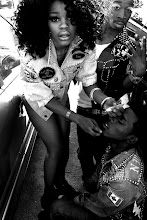
Marian Anderson became an important figure in the struggle for the African American artists to overcome racial prejudice in the United States during the mid twentiety century. In 1939, the Daughters of the American Revolution (DAR) refused permission for Anderson to sing to an integrated audience in Constitution Hall. Their race-driven refusal placed Anderson into the spotlight of the community on a level usually only found by high profile celebrities and politicians. With the aid of President Franklin D. Roosevelt and First Lady Eleanor Roosevelt, Anderson performed a critically acclaimed open-air concert on Easter Sunday, 1939 on the steps of the Lincoln Memorial in Washington, D.C. to a crowd of more than 75,000 people and a radio audience in the millions. She continued to break barriers for African American artists in the United States, becoming the first African American person, to perfoorm at the Metropolitan Opera in New York City on January 7, 1955. Anderson later became an important symbol of grace and beauty during the civil rights movement in the 1960s, singing at the March on Washington for Jobs and Freedom in 1963. The recipient of numerous awards and honors, Anderson was notably awarded the Presidential Medal of Freedom in 1963, the Kennedy Center Honors in 1978, the National Medal of Arts in 1984, and a Grammy Liftime Achievemet in 1991.






















No comments:
Post a Comment